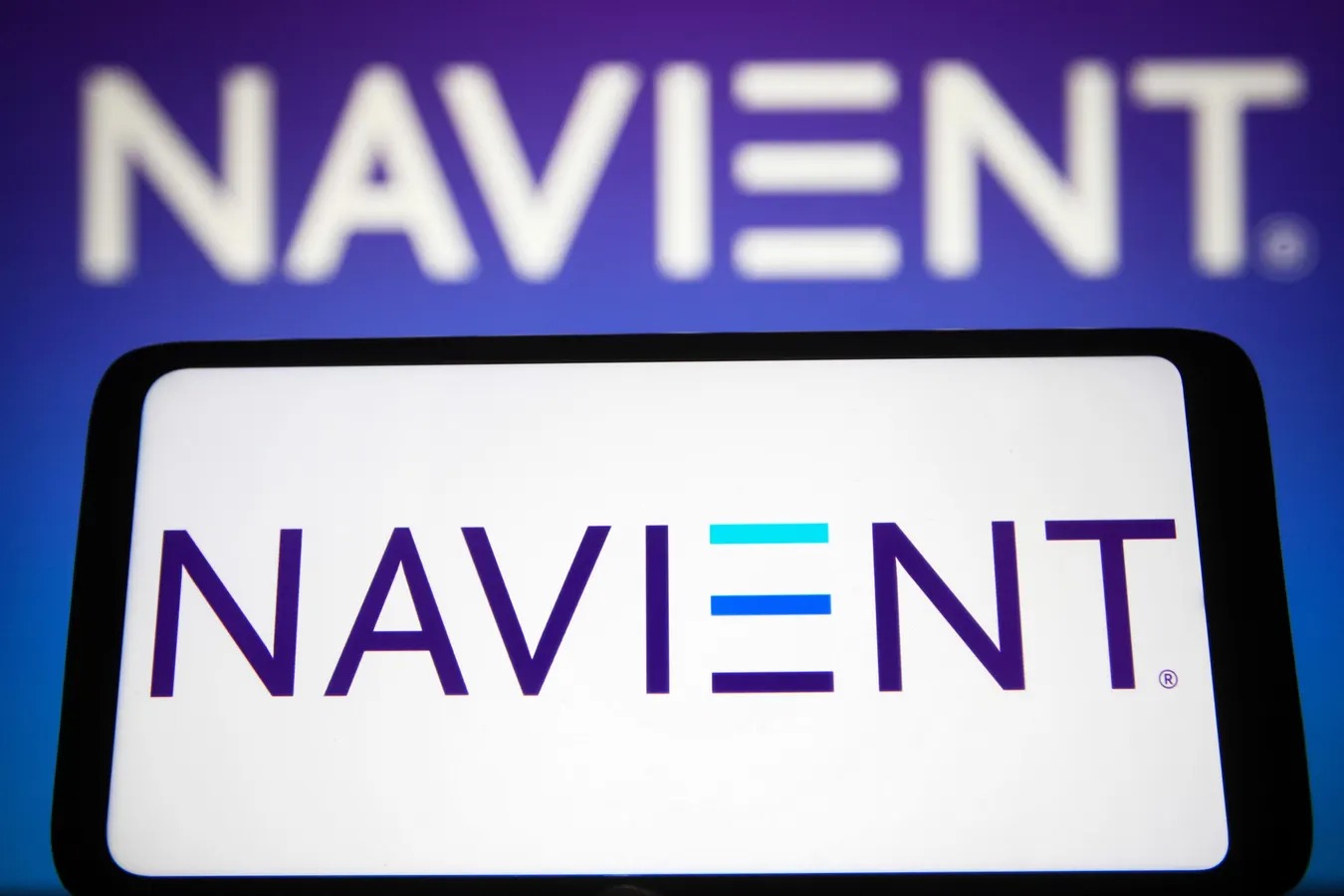Home>Finance>When Referring To Student Loans, What Is The Grace Period?


Finance
When Referring To Student Loans, What Is The Grace Period?
Modified: February 21, 2024
Learn about the grace period for student loans and how it impacts your finances. Understand the importance of managing your finances during this time. Discover expert tips and advice.
(Many of the links in this article redirect to a specific reviewed product. Your purchase of these products through affiliate links helps to generate commission for LiveWell, at no extra cost. Learn more)
Table of Contents
- Understanding the Importance of the Grace Period in Student Loans
- Demystifying the World of Student Loans
- Unveiling the Significance of the Grace Period
- Maximizing the Advantages of the Grace Period
- Strategic Approaches to Leveraging the Grace Period Effectively
- Navigating the Path to Financial Empowerment Through the Grace Period
Introduction
Understanding the Importance of the Grace Period in Student Loans
Student loans are often a necessary means for individuals to pursue higher education and achieve their academic aspirations. However, the process of repaying these loans can be daunting, especially for recent graduates who are transitioning into the workforce. One crucial aspect of student loan repayment that borrowers should be aware of is the grace period. This period serves as a valuable buffer between the completion of one's education and the commencement of loan repayment, providing borrowers with a vital opportunity to establish their financial footing before the burden of repayment begins.
Navigating the realm of student loans can be complex, and understanding the nuances of the grace period is essential for borrowers to effectively manage their financial responsibilities. This article aims to demystify the concept of the grace period, elucidate its significance, and provide insights into maximizing its benefits. By shedding light on this critical aspect of student loan management, borrowers can approach their repayment journey with confidence and clarity.
Understanding Student Loans
Demystifying the World of Student Loans
Student loans are a common financial tool that enable individuals to access higher education opportunities. These loans are typically offered by government entities or private financial institutions, providing students with the necessary funds to cover tuition, books, and living expenses while pursuing their academic endeavors. It’s important to recognize that student loans come in various forms, including federal loans, private loans, and parent loans, each with distinct terms and conditions.
When considering student loans, it’s crucial for borrowers to comprehend the differences between subsidized and unsubsidized loans. Subsidized loans are awarded based on financial need, and the government covers the interest while the borrower is in school and during the grace period. In contrast, unsubsidized loans are available to all students, regardless of financial need, but interest accrues from the time the loan is disbursed.
Furthermore, borrowers should be mindful of the loan repayment options available to them, such as income-driven repayment plans, loan consolidation, and loan forgiveness programs. These mechanisms can significantly impact the overall management of student loan debt, offering flexibility and relief to borrowers facing financial challenges.
Understanding the intricacies of student loans empowers borrowers to make informed decisions and navigate the repayment process effectively. By gaining clarity on the types of loans, interest structures, and repayment alternatives, individuals can embark on their educational journey with a comprehensive understanding of the financial responsibilities that lie ahead.
What Is a Grace Period?
Unveiling the Significance of the Grace Period
A grace period, in the context of student loans, refers to a predetermined span of time following a borrower’s graduation, withdrawal from school, or transition to less than half-time enrollment when they are not required to make payments on their loans. This interval, typically lasting six to nine months, serves as a crucial bridge between the completion of one’s academic pursuits and the onset of loan repayment obligations. During this period, interest may continue to accrue on unsubsidized loans, while the government covers the interest on subsidized loans.
It’s important to note that the grace period is not indefinite, and borrowers should proactively prepare for the eventual commencement of loan repayment. This period offers a valuable opportunity for individuals to secure stable employment, establish a financial plan, and organize their resources before assuming the responsibility of repaying their student loans.
While the grace period provides a temporary reprieve from making loan payments, it is not a time to be complacent. Instead, borrowers should leverage this window of opportunity to gain financial literacy, explore repayment options, and set realistic budgeting goals to ensure a smooth transition into the repayment phase.
Understanding the intricacies of the grace period is paramount for borrowers, as it empowers them to make informed decisions and take proactive steps to manage their student loan obligations effectively. By grasping the significance of this interim period, individuals can approach their financial responsibilities with confidence and foresight, ultimately paving the way for a successful repayment journey.
Benefits of a Grace Period
Maximizing the Advantages of the Grace Period
The grace period associated with student loans offers a range of benefits that can significantly impact borrowers’ financial well-being. Understanding and harnessing these advantages is crucial for individuals navigating the complexities of student loan repayment.
- Financial Preparation: The grace period provides borrowers with a valuable opportunity to prepare themselves financially for the responsibilities of loan repayment. This includes securing stable employment, creating a budget, and establishing an emergency fund to cushion any unforeseen financial challenges.
- Interest Subsidy: For borrowers with subsidized loans, the grace period represents a period during which the government covers the accruing interest. This relief can alleviate the financial burden on recent graduates, allowing them to focus on securing their financial foundation before entering the repayment phase.
- Exploration of Repayment Options: During the grace period, borrowers can explore various repayment options and plans that align with their financial circumstances. This includes researching income-driven repayment plans, loan consolidation, and forgiveness programs to determine the most suitable approach for managing their student loan debt.
- Building Financial Literacy: The grace period serves as an ideal time for borrowers to enhance their financial literacy and understanding of loan terms. By educating themselves on the intricacies of student loan repayment, individuals can make informed decisions and develop effective strategies for managing their debt.
- Transition Period: Graduating from college or completing a course of study marks a significant life transition. The grace period offers a buffer for individuals to adjust to post-graduation life, explore career opportunities, and acclimate to the demands of the professional world before committing to loan repayment.
By capitalizing on the benefits of the grace period, borrowers can lay a strong foundation for their journey toward financial stability and responsible loan management. This interim period not only provides breathing room for recent graduates but also equips them with the resources and knowledge necessary to navigate the complexities of student loan repayment with confidence and foresight.
How to Utilize the Grace Period
Strategic Approaches to Leveraging the Grace Period Effectively
Effectively utilizing the grace period associated with student loans can significantly impact borrowers’ financial well-being and pave the way for a smoother transition into the repayment phase. By implementing strategic approaches during this interim period, individuals can maximize the benefits and set the stage for responsible loan management.
- Financial Planning: Use the grace period to create a comprehensive financial plan that encompasses budgeting, expense management, and long-term financial goals. Establishing a solid financial foundation during this time can mitigate the challenges of loan repayment.
- Employment Search: Leverage the grace period to actively seek stable employment opportunities that align with your career aspirations. Securing a job that offers financial stability can provide the necessary means to meet loan repayment obligations when the grace period concludes.
- Debt Repayment Strategy: If feasible, consider addressing any high-interest consumer debt or credit card balances during the grace period. This proactive approach can alleviate additional financial burdens and position borrowers for more effective management of their student loan debt.
- Research Repayment Options: Take advantage of the grace period to research and understand the various repayment options available for student loans. Explore income-driven repayment plans, loan consolidation, and forgiveness programs to identify the most suitable approach based on your financial circumstances.
- Financial Education: Invest time in enhancing your financial literacy during the grace period. Educate yourself on loan terms, interest rates, and effective debt management strategies. Building a strong understanding of financial concepts can empower you to make informed decisions regarding your student loans.
- Emergency Fund Establishment: Consider allocating a portion of your resources during the grace period to build an emergency fund. Having a financial safety net can provide peace of mind and protect against unforeseen expenses once loan repayment commences.
By proactively engaging with these strategies, borrowers can harness the grace period as a valuable opportunity to fortify their financial position and lay the groundwork for responsible and informed management of their student loans. Embracing these approaches can instill confidence and resilience as individuals transition from the academic sphere to the realm of loan repayment.
Conclusion
Navigating the Path to Financial Empowerment Through the Grace Period
As individuals embark on their educational journeys and seek the means to finance their pursuit of knowledge, student loans often become integral to realizing their academic aspirations. However, the post-graduation phase brings forth the responsibility of managing and repaying these loans, marking a pivotal transition into the realm of financial obligations.
The grace period, a fundamental component of student loan repayment, emerges as a vital intermediary phase that offers borrowers a valuable window of opportunity. This period provides breathing room for recent graduates, enabling them to lay a strong foundation for responsible loan management and financial stability. By understanding the nuances of the grace period and leveraging its benefits, individuals can navigate the complexities of student loan repayment with confidence and foresight.
Throughout the grace period, borrowers are encouraged to engage in strategic financial planning, actively seek employment opportunities, and enhance their financial literacy. This proactive approach empowers individuals to establish a solid financial footing, explore repayment options, and set realistic budgeting goals. Moreover, the grace period serves as a transitional phase, allowing graduates to acclimate to post-graduation life and chart a course toward long-term financial empowerment.
As recent graduates harness the advantages of the grace period, they equip themselves with the knowledge and resources necessary to embark on a successful journey toward responsible loan management. By embracing the opportunities presented during this interim period, borrowers can cultivate financial resilience, mitigate the challenges of loan repayment, and pave the way for a future defined by fiscal empowerment and informed financial decision-making.
Ultimately, the grace period stands as a beacon of opportunity, offering individuals the chance to lay a robust foundation for their financial future. By embracing this period with diligence and foresight, borrowers can traverse the path to financial independence and responsible loan management, ensuring that their educational investments yield enduring benefits and opportunities for long-term prosperity.














